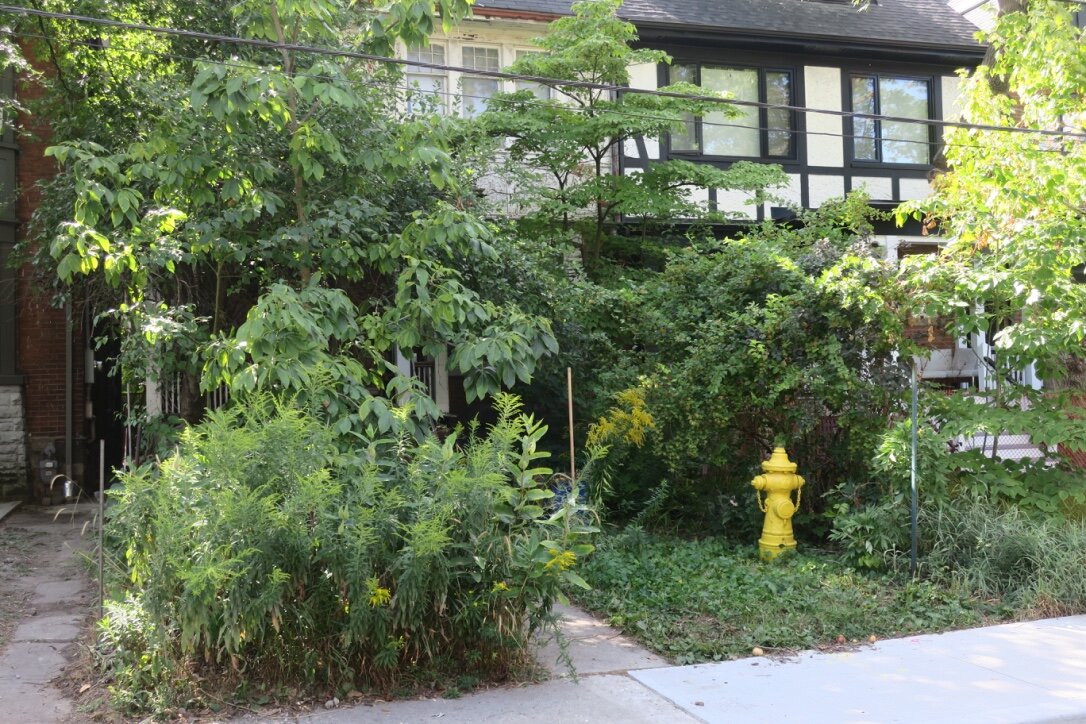This gardener was ordered to remove her native goldenrod.
The goldenrod in the native plant garden above has been ordered cut by October 5, 2020, or the City of Toronto will mow it down and charge the gardener. Goldenrod is a native plant of significant pollinator value, does not cause hayfever, and is not on the provincial Noxious Weeds list.
In a different incident, Nina-Marie Lister was recently notified by the City of Toronto that her ecologically valuable and carefully nurtured meadow violates the grass and weeds bylaw.
These are just two examples of the ways that the City’s grass and weeds bylaw is enforced arbitrarily, places barriers in the way of natural gardens, punishes gardeners who are taking positive environmental action, and contradicts the City’s own progressive Biodiversity Strategy and Pollinator Protection Strategy.
On October 1, 2020, close to 80 organizations and allied professionals endorsed a public letter to the City urging reform of the grass and weeds bylaw.
“While we recognize and support the City’s leadership on biodiversity protection through its Pollinator Protection Strategy and the Biodiversity Strategy, we are concerned that the City effectively undermines this progress by allowing the outdated grass and weeds bylaw to persist,” says urban planner and landscape ecologist Nina-Marie Lister, co-author of the public letter and steward of the meadow in the photo above.
“Twenty-five years after the Ontario Court of Justice ruled that Sandy Bell’s naturalized garden was protected expression under the Charter, the City continues to place barriers in the way of positive action undertaken by those who create natural gardens,” says Lorraine Johnson, co-author of the public letter and author of numerous books on native plant gardening.
Dr. Lister’s lawyer, David Donnelly, has written to Mayor John Tory and the City Legal Department declaring the bylaw illegal, and of no force and effect.

